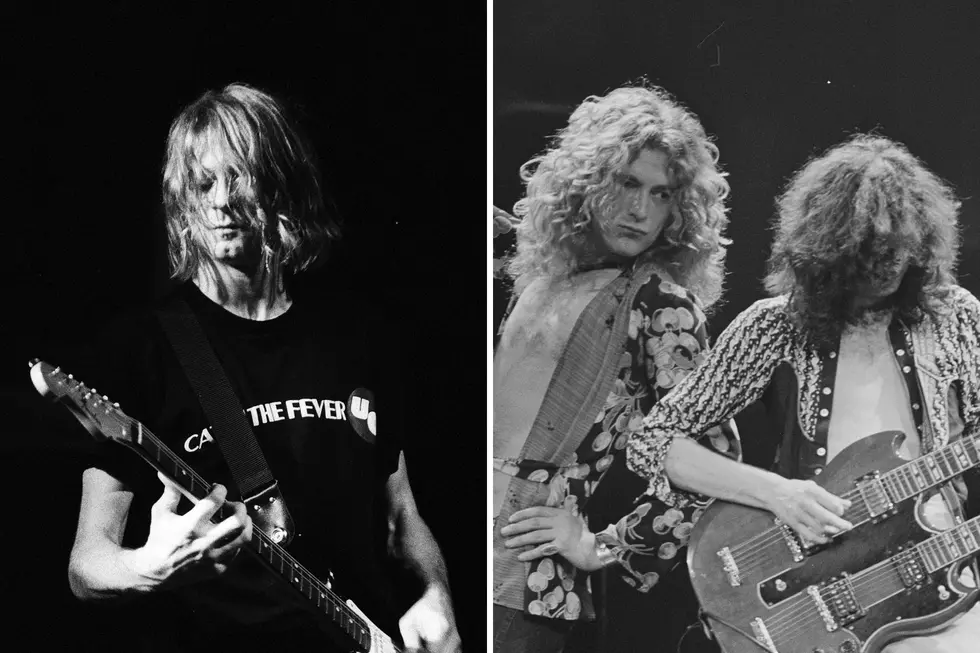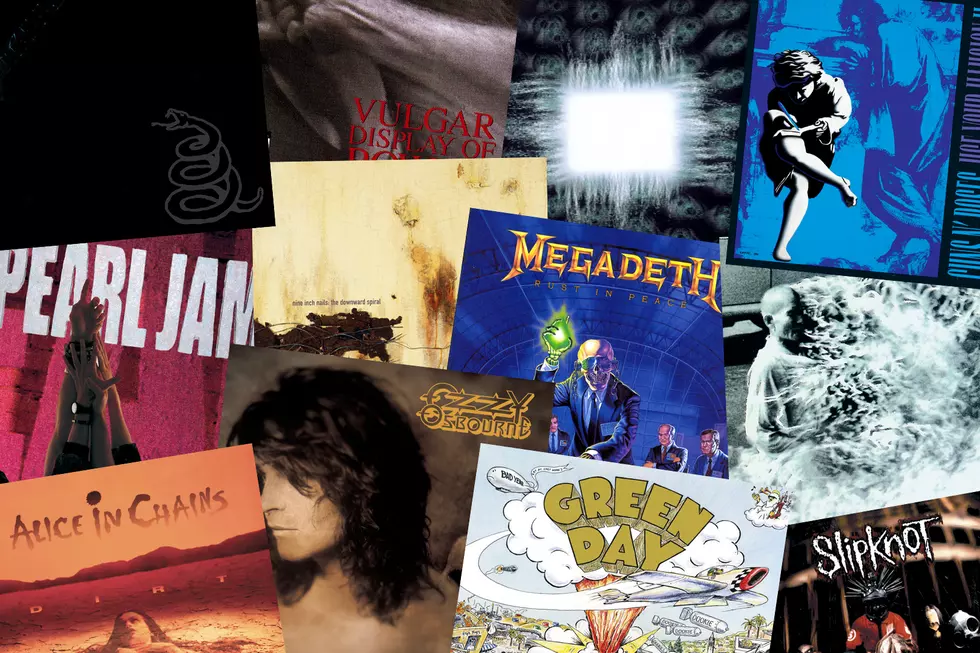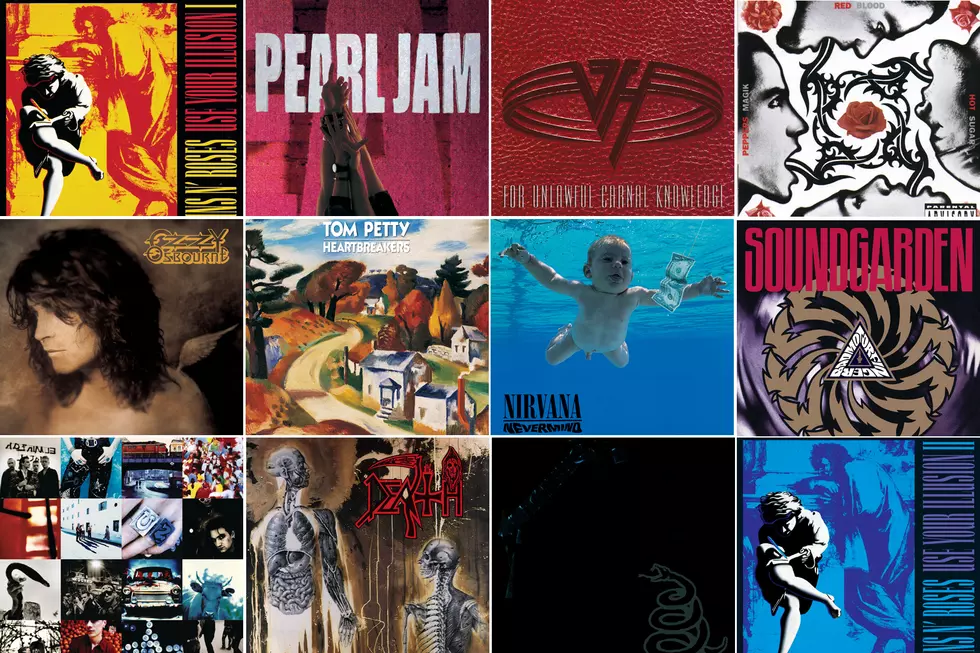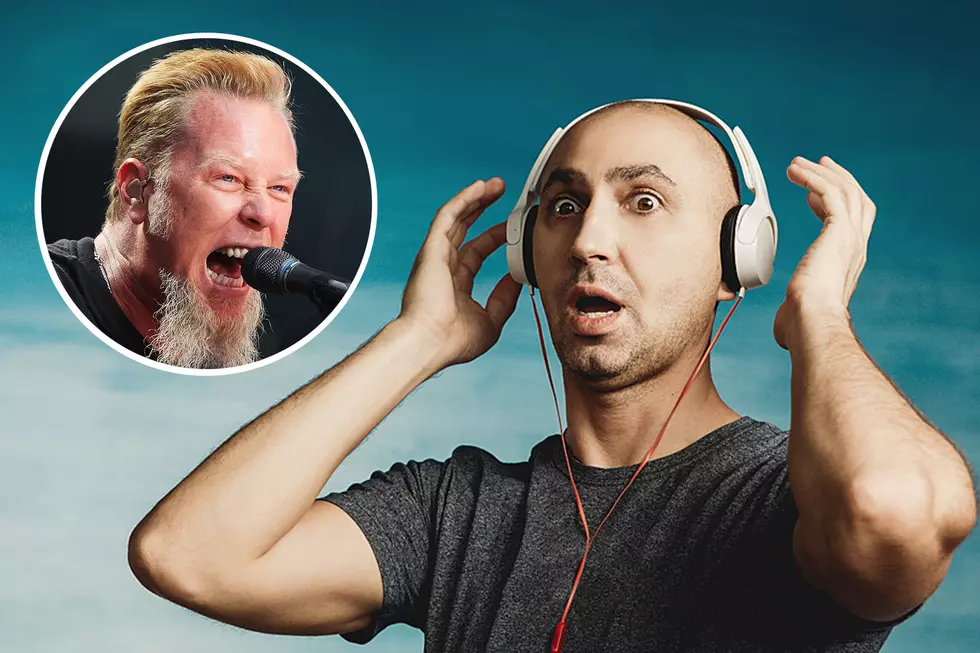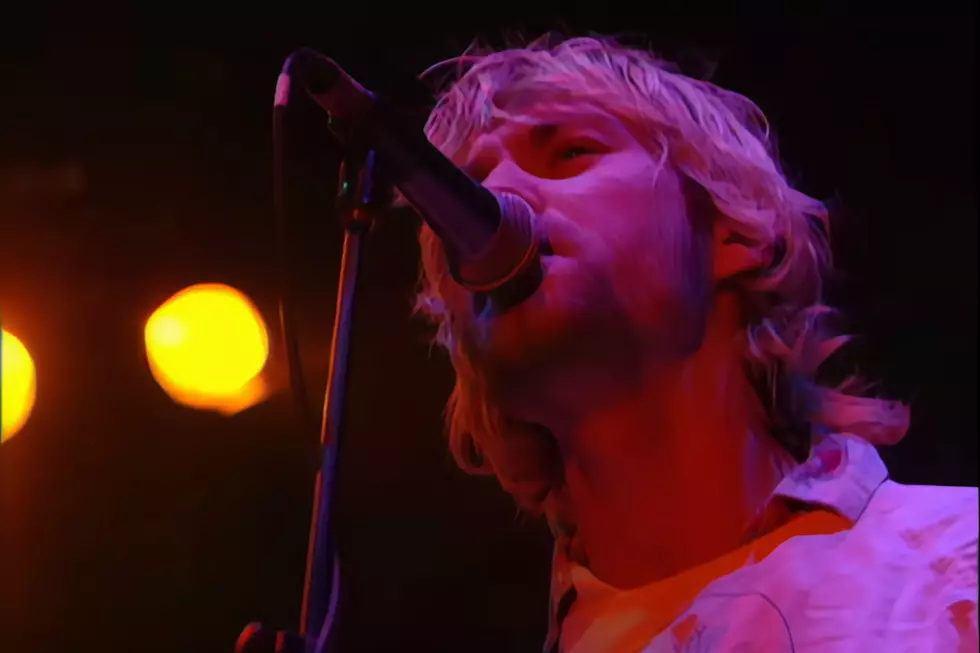When Nirvana Changed Everything With ‘Smells Like Teen Spirit’
It is the hoariest of rock-critic cliches to suggest a moment upon which the balance of the musical universe turned. However, the release of Nirvana’s major label debut single, “Smells Like Teen Spirit” on Sept. 10, 1991, was unquestionably one of those times.
For sheer, near-immediate cultural impact in America, "Teen Spirit" ranks with Elvis Presley's "Heartbreak Hotel," the Beatles' "I Want to Hold Your Hand" and Sly & the Family Stone's "Dance to the Music" as songs by relatively unknown acts that served as such sweeping statements of purpose. Although the sea change had been brewing under the surface for some time, the song effectively launched the "alternative nation" that dominated rock in the '90s.
By combining the Pixies' loud-quiet-loud approach with a riff that had echoes in the Kingsmen's "Louie Louie" and Boston's "More Than a Feeling," "Smells Like Teen Spirit" managed to unite Top 40, Modern Rock and Mainstream Rock radio in a way that simply hadn't happened before. The two major guitar-based acts who, in the '80s, helped break down those barriers, U2 and R.E.M., did it much more gradually, becoming more popular with each release until Mainstream Rock had to take notice. Nirvana's success was straight out of the box, and, within a year, they and the bands that followed in their wake had largely wiped the charts clean of the hair metal that had ruled rock for the previous five years.
But their success came with a double-edged sword. By connecting with an entire nation of disaffected youth, Nirvana, and frontman Kurt Cobain in particular, was heralded as the spokesman of his generation. Similar to when Bob Dylan sang "Don't follow leaders" in “Subterranean Homesick Blues” and the public responded with, "Let's listen to that guy," it was a responsibility Cobain didn't want, and one for which he was emotionally ill-equipped.
Four hit singles and millions of album sales of Nevermind later, Nirvana looked to pull things back to a manageable level with the follow-up. Released in September 1993, In Utero was a rougher listen, but not the line in the sand they had hoped for. It still went multi-platinum, and Cobain sank further into depression and drug addiction. He took his own life on April 5, 1994.
Nirvana Albums Ranked in Order of Awesomeness
More From


